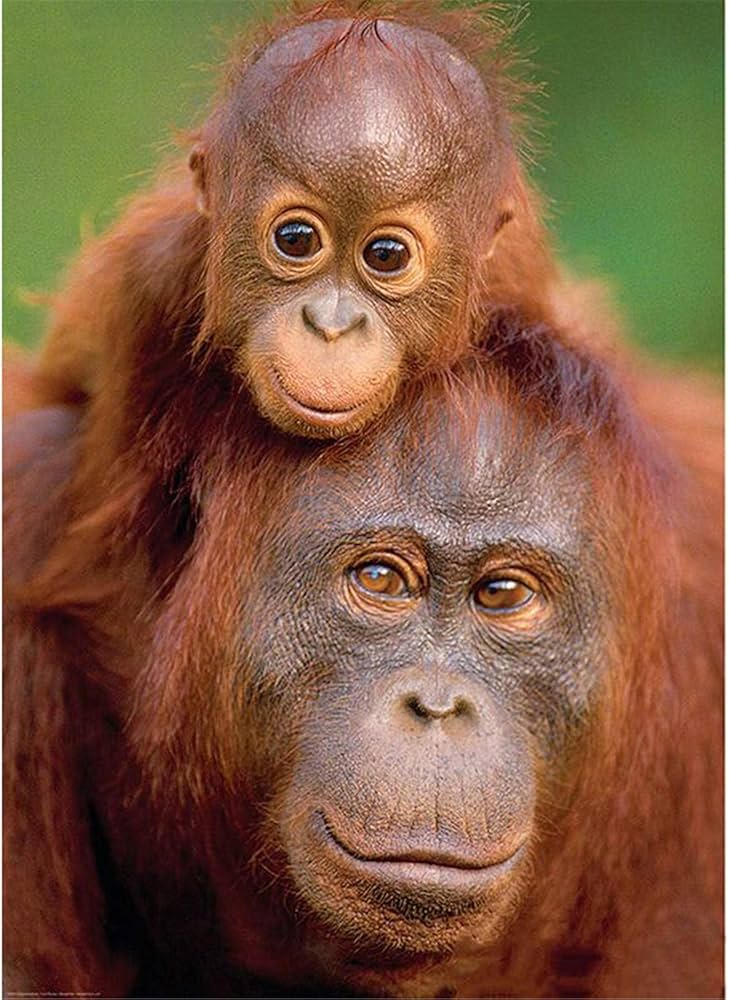
Orangutans Display Unique Maternal Personalities, Long-Term Research Uncovers
In an unprecedented 15-year investigation, researchers have discovered substantial evidence indicating that orangutan mothers do not all exhibit identical parenting approaches. The findings, published in Proceedings of the Royal Society B, provide new insights into the intricate and personalized parenting techniques of wild Sumatran orangutans (Pongo abelii), highlighting consistent variances in maternal behavior that imply the existence of distinct maternal personalities among these great apes.
The research, carried out by scientists at the Max Planck Institute of Animal Behavior, utilized over 6,000 hours of observational data concerning 22 mother-infant pairs in the Suaq Balimbing research area in Indonesia. The team diligently noted a variety of caregiving behaviors and recognized enduring trends in how individual mothers engaged with their infants—even across different offspring and changing environments.
Varied Parenting Methods Among Orangutan Mothers
“For an extended period, it was believed that non-human animal mothers mainly reacted to external factors—such as food availability or infant needs—when it came to caregiving,” stated Dr. Revathe Thillaikumar, the leading author and postdoctoral researcher at the Max Planck Institute. “However, we discovered that individual orangutan mothers exhibit strikingly consistent caregiving styles, independent of these factors.”
The researchers concentrated on six critical maternal actions:
– Initiating and ending physical contact
– Starting and ceasing close proximity
– Carrying
– Feeding while in close vicinity
These actions are vital in shaping the young orangutan’s learning journey, particularly for acquiring skills necessary for survival in the canopy-rich tropical rainforest.
Some mothers showed a propensity to carry their infants more frequently, while others afforded their infants greater autonomy, more often ending body contact. Notably, these tendencies remained largely constant across an individual mother’s various offspring and in response to shifting environmental elements like food availability.
Consequences for Infant Development
Sumatran orangutan infants stay with their mothers for a period of six to nine years—the longest dependency duration of any non-human mammal—providing researchers with a crucial perspective on developmental and social learning processes.
Interestingly, the team observed links between early maternal actions and subsequent infant independence. Mothers who carried their infants more during the initial developmental stage were less inclined to feed nearby later. This suggests that a strong investment in physical closeness early on may facilitate offspring in acquiring essential survival skills—such as foraging—more swiftly, requiring reduced direct supervision as they grow.
“Maternal styles were not only distinctly different,” Thillaikumar remarked, “but these styles seemed to influence how mothers modified—or failed to modify—their care as their infants matured.”
Maternal Personalities in Wildlife
These discoveries add to an expanding compilation of scientific research suggesting that personality traits—once regarded as solely human—are present in numerous non-human animals. According to senior author Dr. Caroline Schuppli, these individual maternal differences function similarly to personalities: stable behavioral patterns over time and across various situations.
“Our findings strongly suggest that orangutan maternal behavior is not merely determined by environmental contexts or infant requirements,” said Schuppli. “Rather, these caregiving habits may represent stable personality traits, akin to styles of human parenting.”
The researchers employed a comprehensive statistical framework to control for various confounding factors such as infant age, sex, social interactions, and ecological conditions. This robust methodology empowered them to confidently link behavioral differences directly to the individual mothers, rather than external influences.
A New Horizon in Evolutionary and Developmental Biology
The results not only dispute prevailing assumptions about non-human animal caregiving but also provoke intriguing inquiries regarding the evolutionary basis of parenting. Can mothers exhibiting certain caregiving behaviors be more effective in raising offspring with enhanced survival capacities? Are these maternal personalities inherited or molded by experiences?
“Investigating whether these behavioral variations lead to different developmental results could transform our understanding of animal psychology and evolutionary biology,” expressed Schuppli.
However, responses won’t emerge overnight. “Considering the lengthy developmental timeline of orangutans, we will need several additional years—potentially a decade—to gather the requisite data to explore how maternal behavior impacts the adult skills of their offspring,” she added.
Conservation Significance
Aside from academic interest, this research carries crucial implications for conservation efforts. Sumatran orangutans are critically endangered due to habitat destruction, poaching, and other human-induced threats. Recognizing the subtle ways in which maternal behaviors facilitate infant development can guide the creation of more effective conservation and rehabilitation strategies.
“With their rainforest habitats increasingly under threat, it is essential that we value and safeguard not only orangutan populations but also their intricate social and developmental dynamics,” concluded Thillaikumar.
This study highlights the profound cognitive and emotional experiences of these gentle primates and emphasizes the significance of long-term ecological research in revealing the hidden complexities of wildlife behavior.
Stay Informed with Wild Science
To stay updated on more revelations about the natural world—such as the unexpected parenting approaches of orangutans—subscribe